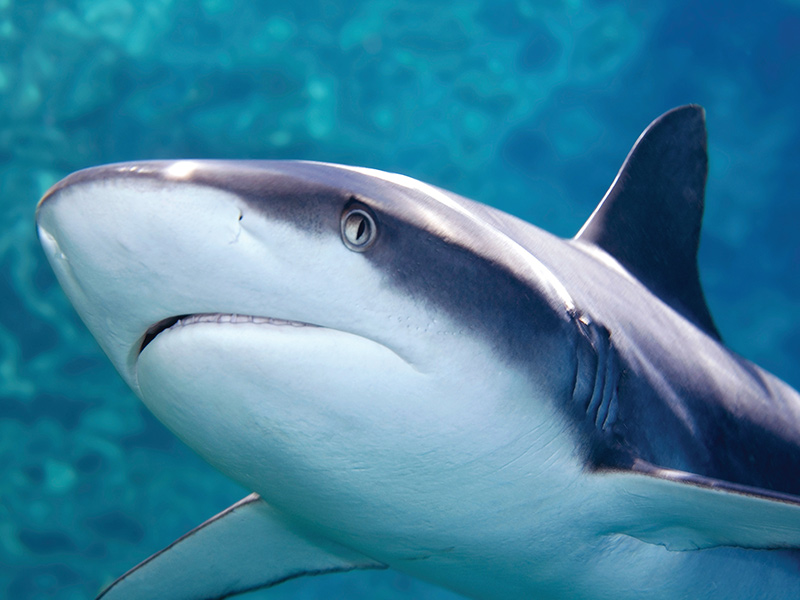Hurry, offer ends soon!
Blacktip Reef Shark




As the name suggests, this reef shark has black tips on all its fins; pectoral, dorsal and tail. They have a long pointed snout, small eyes and a streamlined torpedo-shaped body enabling them to swim swiftly and efficiently through the water. They can sometimes been seen jumping out of the water and spinning before dropping back, this behavior is used during feeding. The sharks propel themselves up vertically through a school of fish, spinning and snapping at their prey until they breach the surface.
Blacktip reef sharks predominantly feed on shoals of small fish including herring and sardines but will also prey on cuttlefish, octopus, crabs, lobster and squid. These sharks often swim in large schools which can be useful when hunting although it can also result in a competitive feeding frenzy when met with vast shoals of fish.
The female Blacktip reef sharks give birth to between one and ten pups, following a year of pregnancy. Mating and birth occurs between May and June and the juvenile sharks remain in shallow protected nursery waters until the autumn with plentiful food and away from potential predators.
The Blacktip reef shark is regarded as a timid shark that is easily scared away from humans however because of their shallow water swimming habits, they sometimes encounter bathers, with some minor bites recorded. No such black tip reef sharks bites have ever resulted in serious injury.
As with most shark species Blacktip reef shark populations have been decimated through over exploitation by commercial and recreational fisheries. Black tip reef sharks are slow to reach breeding age and produce a small number of young when they do, making them extremely vulnerable to such pressures. Fins are sold to Asian markets to make the Chinese ‘delicacy’ shark fin soup and are also killed as bycatch in nets intended for other fish.
A group of nine blacktip reef sharks can be found in our largest tank; Shark Wreck Reef at the Oceanarium. Visitors can see these sharks being fed four times per week in their 350,000 litres of water tank.